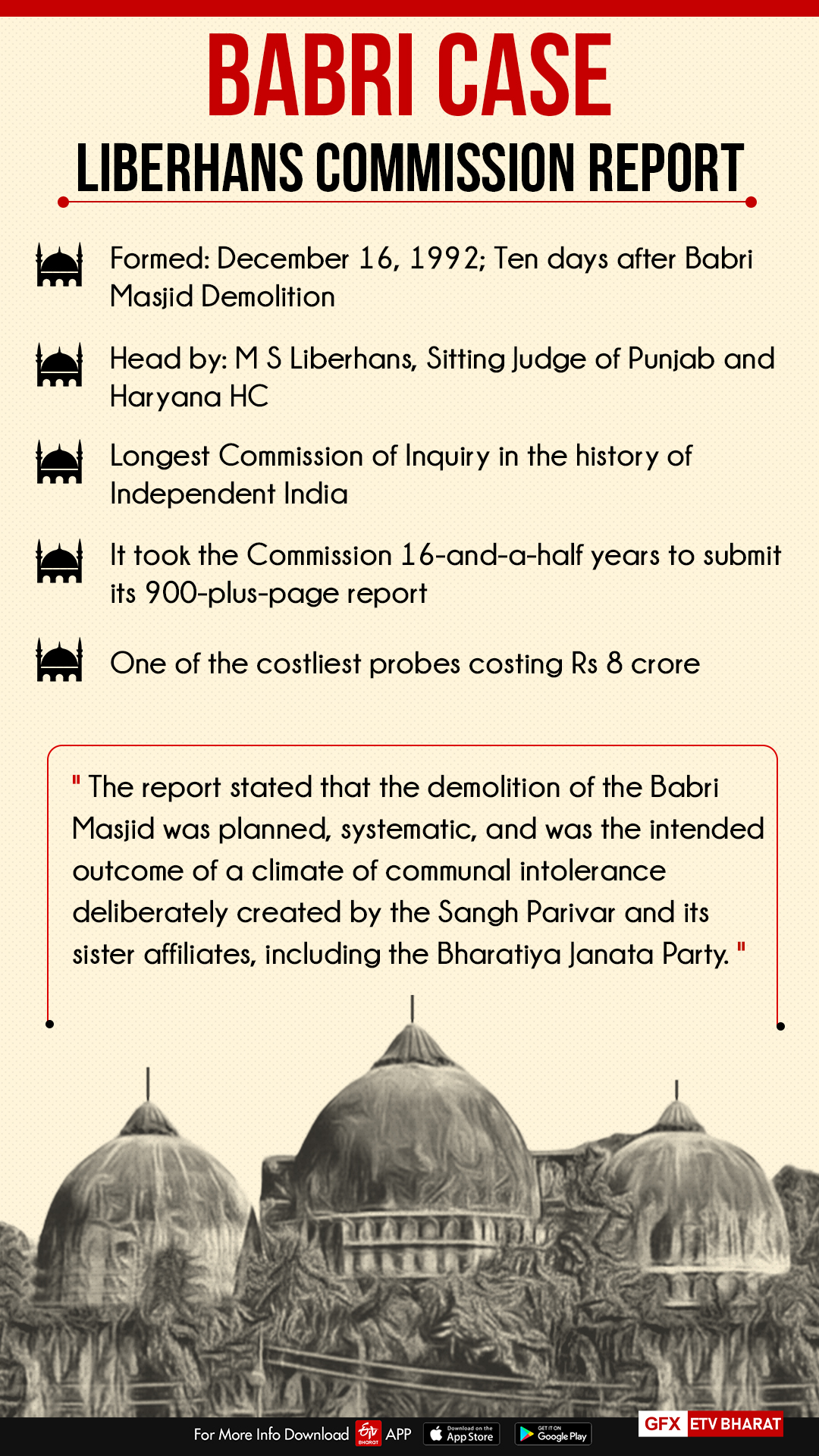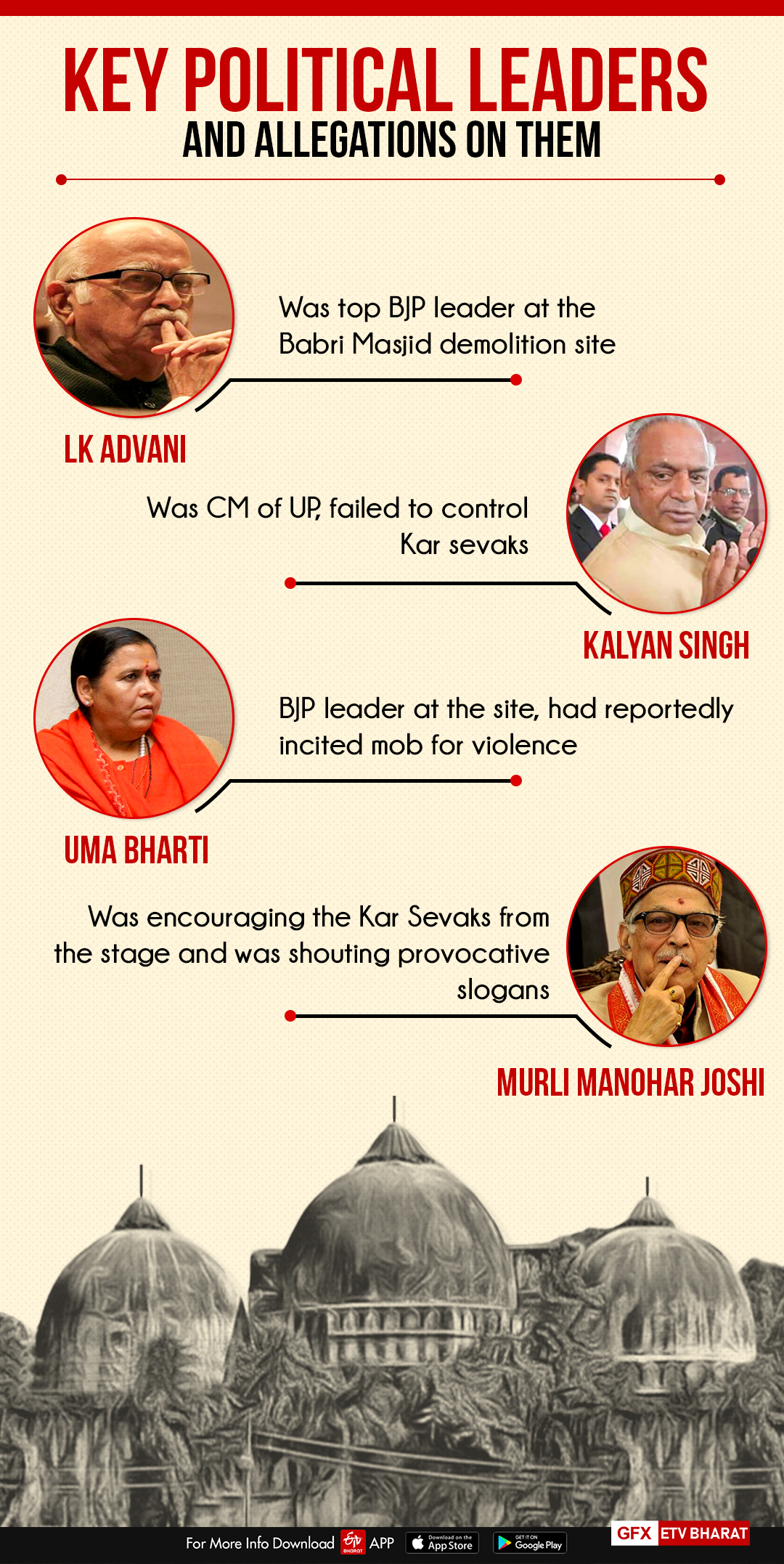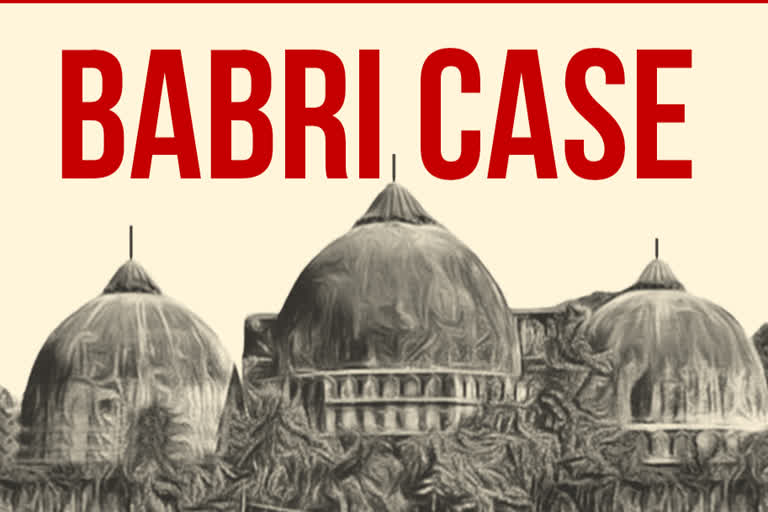New Delhi: The Liberhans Committee was commissioned ten days after the Babri Masjid demolition by the then Prime Minister PV Narsimha Rao to investigate the events that led to the incident.
The Babri Masjid structure at the disputed site in Ayodhya was demolished on December 6, 1992 by the supporters of the Vishwa Hindu Parishad (VHP), the Shiv Sena party and the Bharatiya Janata Party, prompting nationwide communal riots in which more than 2,000 people die.
The Liberhans Committee Report
The Justice Manmohan Singh Liberhan Commission of Inquiry was appointed on December 16, 1992, 10 days after the demolition of the Babri Masjid.
M S Liberhan, then a sitting judge of the Punjab and Haryana High Court, was assigned the task of probing the sequence of events that led to the occurrences at the Ram Janmabhoomi-Babri Masjid complex on December 6, 1992, resulting in the destruction of the structure

In a notification issued, the then Union Home Secretary, Madhav Godbole had said that the Commission would submit its report to the Central government 'as soon as possible but not later than three months'.
But with 48 extensions, the Liberhan panel became the longest Commission of Inquiry in the history of Independent India. The last extension was in March 2009 for three months. It took the Commission 16-and-a-half years to submit its 900-plus-page report.
By June 30, 2009, when the report was submitted to Prime Minister Manmohan Singh, the Union Government had spent over Rs. eight crore on the commission, making it the most costliest ever.
The report stated that the demolition of the Babri Masjid was planned, systematic, and was the intended outcome of a climate of communal intolerance deliberately created by the Sangh Parivar and its sister affiliates, including the Bharatiya Janata Party.
Also, the report places individual culpability for the demolition on a total of 68 people. Kalyan Singh, his Ministers and his hand-picked bureaucrats created man-made and cataclysmic circumstances which could result in no consequences other than the demolition of the disputed structure.

The Key Political Personalities and allegations on them:
- L.K. Advani, Former BJP president: It was 1990 and the Bharatiya Janata Party (BJP) was hoping to expand its footprint nationally. In the 1984 general elections, the party had won only two seats in the Lok Sabha; by 1989, the party had won over 80 seats. L.K. Advani, party president from 1989, undertook a rath yatra. It was meant to culminate in Ayodhya but was stopped by Lalu Prasad Yadav, the then chief minister of Bihar, who ordered Advani arrested.
In 1996, BJP emerged as the single largest party in Lok Sabha and formed a short-lived government at the centre for 13 days. In 1998, the party came to power again as part of the National Democratic Alliance with Advani as home minister. He was later elevated to deputy Prime Minister.
- Kalyan Singh, Former Chief Minister of Uttar Pradesh
It was the Uttar Pradesh chief minister’s duty to ensure the safety of the Babri Masjid, irrespective of his ideological leanings. But Singh’s reputation is forever sullied by the misleading statements he made in the run-up to 6 December. From written assurances to speeches in the assembly, he insisted his government would provide security to the disputed structure.
Singh even submitted a four-point affidavit to the Supreme Court promising security of the mosque and assuring that only a symbolic kar seva would be allowed. Singh resigned within hours of the Babri Masjid being demolished.
- Uma Bharti, BJP Leader
She was one of the Bharatiya Janata Party (BJP) leaders present at the rally in Ayodhya during which the Babri Masjid was demolished. The Liberhan Commission, set up to probe the events of that day, indicted her for inciting a mob to violence.
- Murli Manohar Joshi, BJP leader
According to the investigation, Murli Manohar Joshi had said at Mathura on December 1, 1992, on his way to Ayodhya that no force can stop construction of Ram temple and he was encouraging the kar sevaks from the manch on December 6, 1992, for the demolition of the disputed structure and was shouting provocative slogans.
The Supreme Court bench comprising of Justices R F Nariman and Surya Kant sets deadline for the completion of the case involving the demolition of Babri Masjid. According to reports, the apex court directed the CBI court to pronounce the verdict by August 31.
After concluding its investigation, the CBI had filed a charge sheet against 49 accused, of whom 17 have died pending trial. The accused in the case include former deputy prime minister L K Advani and senior Bharatiya Janata Party (BJP) leaders MM Joshi, Uma Bharti and Vinay Katiyar.
Also, read: SC sets August 31 deadline for Babri demolition verdict



